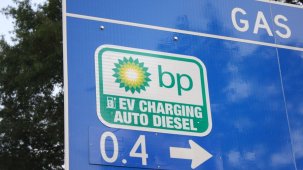justinm001
Solar Addict
- Joined
- Dec 18, 2022
- Messages
- 1,636
95% of people drive less than like 30 miles a day and 99% of people don't need anything other than a car for most cases. EV charging isn't a problem, there's chargers everywhere and all over you just need to know where to look. Gas stations dont want or need charging stations becuase their model doesn't support it. Its very rare that people NEED to charge away from home. Only people who live in apts or similar situations
The only issue is travelling and buying large items which I feel both are going to be solved soon.
It's just going to take 1 restaurant chain to offer free L2 charging when you come for a meal and others will follow suit. Same with hotels and shops. Paying a couple bucks in electricity for a family to eat is well worth the acquisition costs.
I'm just waiting for the "rent my truck for an hour" or "have truck will help move" app to blow up and it'll be game over. BTW uhaul has an app that allows 24/7 truck rental i think just not that great yet.
There's a point of mass adoption and we're right on the cusp. Give it a couple more years and EV will overtake gas as the default.
The only issue is travelling and buying large items which I feel both are going to be solved soon.
It's just going to take 1 restaurant chain to offer free L2 charging when you come for a meal and others will follow suit. Same with hotels and shops. Paying a couple bucks in electricity for a family to eat is well worth the acquisition costs.
I'm just waiting for the "rent my truck for an hour" or "have truck will help move" app to blow up and it'll be game over. BTW uhaul has an app that allows 24/7 truck rental i think just not that great yet.
There's a point of mass adoption and we're right on the cusp. Give it a couple more years and EV will overtake gas as the default.




